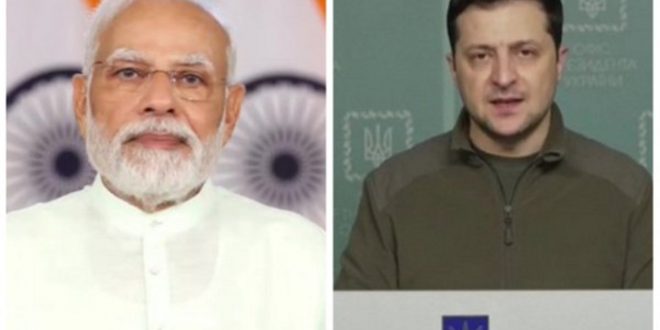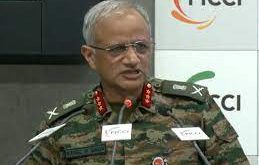new Delhi. Ukrainian President Volodymyr Zelensky and Prime Minister Narendra Modi had a phone conversation on Monday. Ukrainian President Zelensky sought India’s support to implement the ‘peace formula’. He proposed this at the G-20 summit in Indonesia last month. In this conversation, Prime Minister Narendra Modi said that any peace effort aimed at ending the conflict in Ukraine would be supported. PM Modi reiterated his call for an immediate end to hostilities and a return to diplomacy and dialogue.
India has not yet condemned the Russian aggression on Ukraine and has maintained that the issue should be resolved through diplomacy and dialogue. This was the second phone conversation between Modi and Zelensky since October. It came less than a fortnight after the prime minister’s phone call with Russian President Vladimir Putin. Prime Minister Narendra Modi “strongly reiterated his call for an immediate cessation of hostilities, and said both sides should return to dialogue and diplomacy to find a permanent solution to their differences.” Conveyed India’s support. Assured India’s commitment to continue providing humanitarian assistance to the civilian population in Ukraine.
Had wished Modi a successful G20 presidency: Zelensky
Zelensky said in his tweet that he wished Modi a successful G20 presidency. In this forum I announced the peace formula and now I count on India’s participation in its implementation. I also thanked the United Nations for humanitarian assistance and support. The Indian statement did not directly refer to Zelensky’s peace formula, which was outlined by the Ukrainian leader on November 15 during a video speech broadcast at the G20 summit in Bali, Indonesia. At the time, Zelensky referred to the grouping of the world’s 20 largest economies as the ‘G19’ while he used the analogy of ‘a swindler’ for Russia.
Zelensky spoke about the 10-point peace formula
Zelensky talked about a 10-point peace plan. Its objective was to end the ‘Russian war of aggression … justly and on the basis of the United Nations Charter and international law’. The 10 points include confirmation of nuclear security, food security, energy security, release of all prisoners and exiles, restoration of territorial integrity of Ukraine, withdrawal of Russian troops and cessation of hostilities, prevention of escalation and end of war. During their last phone conversation on 4 October, Modi had stressed the importance India attaches to the safety and security of nuclear installations, including those in Ukraine. He had said that putting nuclear facilities at risk could have “far-reaching and disastrous consequences”. He also said that “there can be no military solution to the conflict”.
Strengthen bilateral cooperation between Ukraine and India
During the talks, the two leaders discussed opportunities to strengthen bilateral cooperation and Modi urged Ukrainian authorities to make arrangements for the continuation of education of Indian students returning from Ukraine. Some 20,000 Indian students, most of them enrolled in medical and engineering courses, left Ukraine in the weeks after Russia launched its invasion on 24 February. About 1,000 students have returned to Ukraine in recent months, although uncertainty surrounds the future of others. The Indian statement said Zelensky conveyed his best wishes for India’s G20 presidency, while Modi outlined India’s main priorities, including “the concerns of developing countries on issues such as food and energy security”.
 Indian Thought Latest News & Views
Indian Thought Latest News & Views


